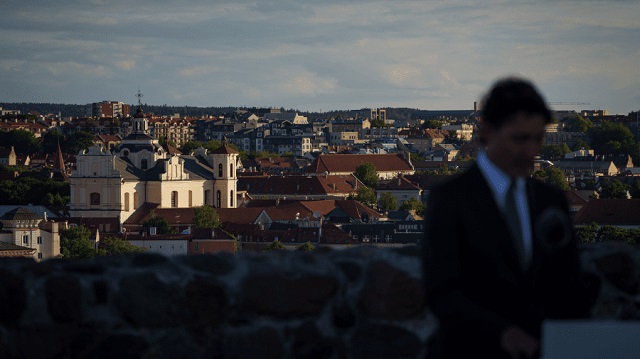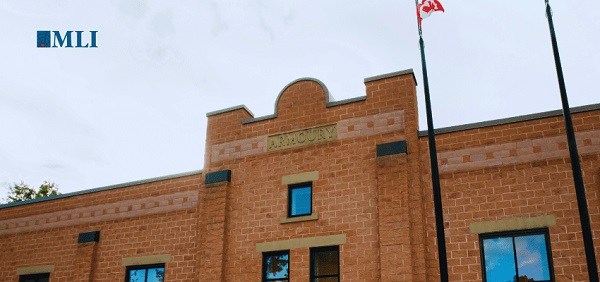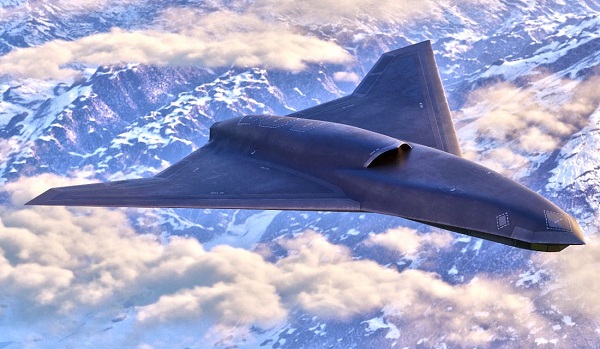armed forces
Sapped of both hard and soft power, Canada needs action to keep up in a dangerous world

From the MacDonald Laurier Institute
By Charles Burton
Ottawa’s vexing indifference toward national defence and security will not serve or protect Canada.
Speaking to an international crowd of leaders, ministers and other representatives who had gathered earlier this month in Beijing for a forum that marked 10 years of China’s Belt and Road Initiative global infrastructure program, Chinese leader Xi Jinping declared that “changes of the world, of our times, and of historical significance are unfolding like never before.”
Quite right. Will the Russian invasion of Ukraine be resolved without war with NATO? Will armed conflict in the Middle East, fomented by Iran, spiral into a regional war? Would China open a third front by invading Taiwan? If the atrocious provocations to war by Iran, Russia and China develop simultaneously on three fronts – setting off a world war in Asia, the Middle East and Indo-Pacific – where will Canada stand?
Canada should be a respected and resonant voice in the international arena. We are both an Atlantic and a Pacific nation, and our heralded history of peacekeeping involvement in the Middle East dates back to the Suez Crisis of the 1950s and Lester Pearson’s Nobel Prize. In the Second World War, prime minister William Lyon Mackenzie King sat down for four power meetings with Franklin Delano Roosevelt, Winston Churchill and Joseph Stalin.
Canada once mattered. But those days are long gone.
Years of underfunding defence and freeloading on the U.S. for our national security are leading to Canada being phased out. The significance of the Group of Seven and the Five Eyes intelligence alliance has become equalled or overtaken by that of organizations from which Canada is excluded, such as the Quint and AUKUS, which is aimed at Indo-Pacific security even though Britain is not a Pacific nation. Despite reportedly telling Western leaders and officials at the G20 summit that it had credible intelligence that India’s government was involved in the assassination of a Canadian citizen, no leader was willing to publicly criticize Narendra Modi. Our soft power authority has faded.
Given our pathetically depleted hard power capabilities, Canada needs a reality check on what we can actually do with the limited resources at our disposal.
First of all, it is time to stop mouthing hollow bromides about “our” north, and actually reorient our defence to establish a meaningful presence in the Arctic. China now defines itself as a “near-Arctic nation,” with increased investment in the region and plans around a potential shipping route – a “polar silk road” – that could emerge between melting ice caps; Russia, meanwhile, has argued that much of Canada’s Arctic waters actually belongs to them. If a major conflict were to arise with Russia and China allied against the U.S. and Canada, our unprotected Arctic could be quickly lost to Beijing and Moscow’s ambitions to expand their territory beyond Europe and East Asia.
Secondly, Canada must protect its northern stores of critical minerals. We talk a good game on this, but so far that has mostly been political bafflegab. Beyond making an obvious statement about our sovereignty, developing our northern resources is a productive way to create economic opportunities for northern Indigenous communities, and shows our allies that we are serious about stopping China from monopolizing valuable minerals in Canadian soil that are vital to the world’s high-tech future.
Finally, Ottawa needs to step up and meet the challenge to Canada’s security from Iran, Russia and China. There was tough talk in Parliament earlier this year about foreign actors manipulating our democratic institutions, but there has yet to be legislation tabled to create so much as a foreign agent registry. The federal government’s response to the 34 well-considered recommendations of a House of Commons special committee on Canada-China relations released in May was dismissive.
Even the Commons subcommittee on international human rights’ report on Tibetan residential schools in China was effectively ignored. One would have thought this issue would be something Canada could take a lead on, considering our history in this area. But in responding to the report, Foreign Affairs Minister Mélanie Joly didn’t even acknowledge the recommendation that Canada sanction Chinese Communist officials complicit in their residential schools policy.
What is the point of investing considerable resources into parliamentary committees if the government sees them only as an irritant to be checked, rather than a positive contributor to national policy development?
We are facing an axis of cold-blooded dictators determined to destroy Western-supported stability and order. With global tensions more combustible than at any time in a generation or more, Ottawa’s vexing indifference toward national defence and security will not serve or protect Canada.
We need to refocus what remains of our military and security resources to what really matters, and fast.
Charles Burton is a senior fellow at the Macdonald-Laurier Institute, non-resident senior fellow of the European Values Center for Security Policy in Prague, and former diplomat at Canada’s embassy in Beijing.
armed forces
Underfunded and undermanned, Canada’s Reserves are facing a crisis

The Macdonald Laurier Institute
By J.L. Granatstein for Inside Policy
With the new threats facing Canada and NATO, change must come quickly: Canada needs to fix the Army Reserves.
Canada’s once-proud Reserves force is fading fast – and without urgent action, it risks becoming irrelevant.
The Canadian Armed Forces Primary Reserves have an authorized strength of 30,000, but the present numbers of the Army, Navy and Air Force Reserves as of November 2024 are only 22,024. The RCN Reserves number 3,045, the RCAF 2,162, and the Army 16,817. This is frankly pathetic, all the more so as the regular forces are sadly understrength as well.
The Army Reserves have a long history, with some units dating back before Confederation. Before both world wars the Militia’s strength was roughly 50,000, generated by populations of eight million in 1914 and eleven million in 1939. Amazingly, despite a lack of training and equipment, the Militia provided many of the Army’s officers, up to and including successful division and regimental commanders, and large numbers of the senior non-commissioned officers. A century ago, even after some consolidation following the Great War, almost every town and city had an armoury and a Militia unit with a cadre of officers, good numbers of enlisted men, and some social status in their community. The factory owners, bankers, and well-off were heavily represented, and the Militia had real clout with representation in Parliament and easy access to the defence minister.
Not any longer. The armouries in most of Canada have disappeared, sold off by governments and levelled by developers, and those that still stand are in serious need of maintenance. The local elites – except for honorary colonels who donate funds for extra kit, travel, celebratory volumes, and to try to stop Ottawa from killing their regiment – are noticeably absent.
So too are the working men and women and students. As a result, there are Army Reserve units commanded by a lieutenant-colonel with three majors, half a dozen captains, ten lieutenants, a regimental sergeant major and any number of warrant officers, and under seventy in the ranks. It is a rare Reserve regiment, even those in Canada’s largest cities, which has a strength above 200, and ordinarily when a unit trains on a weeknight or a weekend only half that number turn up. Even in summer, when reservists do their serious training at Petawawa or other large bases, there will be many absentees.
And when a unit is asked to raise soldiers for an overseas posting – say for the Canadian-led brigade in Latvia – it might be able to find ten or so volunteers, but it will be highly unlikely to be able to do so when the next call comes. Reservists have families, jobs or school classes, and few are able and willing to go overseas and even fewer to do so for subsequent deployments.
Without reservists filling the ranks (and even with them providing up to 20 per cent of a battalion’s strength), the undermanned regulars must cobble together a battalion of 600 or so by seconding troops from another Regular unit. After being brought up to Regular force standards before deployment, the reservists have performed well in operations, for example, in Afghanistan.
So why can’t the Army Reserves find the men and women to join their ranks? The reasons are many and much the same as the recruitment difficulties facing the Regular Army. Sexual harassment cases have abounded, affecting the highest ranks and the lowest. Modern equipment has been and is continuing to be lacking.
Procurement is still bogged down with process, paperwork, and long timelines – for instance, approving a new pistol took a decade. And the Reserves get modern equipment only after the Regulars’ needs are met, which unfortunately means never. Instead of a tank or a Light Armoured Vehicle, units get pickup vehicles painted in dark green and see anything more only on their rare days of training in the field.
Leaders of the Reserves have called for a separate budget for years, demanding that they decide how the funds are allocated. National Defence Headquarters has refused, rightly claiming that the underfunded Regulars have higher priority. But the Reserves point to official documents that in 2019-20 demonstrated that of $3.018 million allocated to the Reserves, only $1.3 billion reached them, the rest being unspent or re-allocated to the Regulars.
With some reason this infuriates Reservists who point to this happening every fiscal year.
So too does what they see as the condescension with which they are treated. A Reserve major is equal in rank to a Regular major, but both know that the Regular is almost always far better trained and experienced for his job and that rankles. (Many years ago, when I was a junior officer, I remember another Regular referring to “the ****ing Militia.” I know that Reserve officers reverse the compliment.)

Today with unemployment above nine per cent and with young Canadians’ unemployment rate even higher, the Reserves pay a new private a daily rate of some $125 (The Carney government recently promised a substantial pay raise). This ought to be a good option to earn some money. The Toronto Scottish, an old and established infantry unit, for example, has a website that lists other benefits: up to $8,000 for educational expenses and up to $16,000 for full-time summer employment. The Toronto Scottish has two armouries in the western suburbs, a female Commanding Officer, but under 200 soldiers. There should be a real opportunity in the current circumstances to increase those numbers by a good advertising campaign pitched directly at young men and women in the Toronto suburbs. The same can be said for every big city.
But the small town and rural units, tiny regiments whatever their storied histories, are unlikely to be able to grow very much. National Defence Headquarters needs to set a number – say 150, 200, or 250 – above which a unit will keep its command structure. Below that standard, however, units will be stripped of their higher ranks and effectively consolidated under the Reserve brigade in their area.
Reservists have fought such suggestions for years, but if the Reserves are to become an efficient and effective force, this is a change that must come. One such experiment has combined the Princess of Wales Own Regiment in Kingston, Ontario, and the Brockville Rifles by putting the Commanding Officer of the first and the Regimental Sergeant Major of the second in charge. Unit badges can remain, but this reduces the inflated command staffs.
In reality, these small regiments are nothing more than company-sized sub-units, and sub-units of less than a hundred simply cannot train effectively or draw enough new members from their small town and rural catchment areas. Combined they can function effectively.
The federal government will soon release an army modernization plan. Change is always difficult but with the new threats facing Canada and NATO, change must come quickly. Canada needs to fix the Army Reserves.
Historian J.L. Granatstein is a member of the Macdonald-Laurier Institute’s Research Advisory Board. A bestselling author, Granatstein was the director and CEO of the Canadian War Museum. In 1995, he served on the Special Commission on the Restructuring of the Reserves.
armed forces
Secretive Lockheed Martin Skunk Works reveals latest high-tech military drone

 THE MAKICHUK REPORT
THE MAKICHUK REPORT
Unmanned Vectis to ride shotgun with next-gen fighters
When Lockheed Martin’s super secret Skunk Works© advanced development arm unveils a new project, the aviation world stops and listens.
As always, it is very hush-hush, and, quite often, groundbreaking.
This week’s announcement didn’t disappoint.
It’s called “Vectis” — a stealthy autonomous drone that Lockheed intends to fly by the end of 2027.
As with most Skunk Works projects, officials declined to comment on certain aspects of the aircraft’s design, such as its engine or top speed, though it was noted that Lockheed’s analysis “doesn’t point toward supersonic [speeds]” as a requirement.
What do we know about it, aside from it’s very cool, futuristic design?
The first Vectis prototype is currently “in progress,” and is envisioned as a large “Category 5” reusable drone designed to be customizable to match shifts in the threat environment, said OJ Sanchez, Skunk Works’s vice president and general manager.
“Vectis provides best-in-class survivability at the CCA [Collaborative Combat Aircraft] price point,” Sanchez told reporters ahead of the Air Force Association’s Air Space and Cyber conference in Washington, D.C. “Prototype parts are ordered, the team is in work, and we intend to fly in the next two years.”
According to Breaking Defense, Lockheed sees the range, endurance and flexibility of Vectis’s design as key to its appeal.
It is being developed for the US and international markets based on feedback from multiple customers about the future battlefield.
One has to only look at the Russia-Ukraine conflict, to see that things have changed.
Vectis can carry out mission sets ranging from air-to-air, air-to-ground and ISR, and has an open systems architecture allowing it to interface with platforms and mission systems not built by Lockheed Martin, Breaking Defense, reported.
Certain aspects of the drone — such as which payloads it can carry, or whether it is optimized for regular operations or used less frequently on deployments — can be fine-tuned to meet a customer’s specific requirements.
For instance, “we will have built into it the ability for it to be a daily flyer, reliably work alongside its crew teammates, to be able to integrate into operations for training, as well as for deployment,” Sanchez said.
“At the same time, if the requirement is ease of storage and ease of assembly, it’s absolutely built into the design. … That’s where we’ll work closely to listen with any individual customers and go from there on their operations choice, but the flexibility is built in.”
With the lessons of Ukraine in mind, Vectis is designed to be maintainable in a deployed environment, with a simple design made of “and durable, reliable materials” and easy access to the aircraft’s internal systems if repairs need to be made.
While it has not flown, Lockheed has conducted operational analysis and simulations that paired the drone with the F-22 and F-35, with Sanchez noting that its low-observable signature and communications gear are “compatible” with fifth- and sixth-generation aircraft.
It was also informed by previous experience designing tailless aircraft like the X-44 MANTA, Lockheed’s sixth-generation fighter prototype for the Air Force’s Next Generational Air Dominance program, Sanchez said.
“We’re building in that kind of autonomy, that flexible autonomy, if you will, so that we can work with more countries, more partners, to really listen to what their needs are,” he said.
“That flexibility has been demonstrated through multiple demonstrations. Now we’ll go out and build it, and we’ll work to prove in the open air.”
In the U.S. military’s parlance, Group 5 uncrewed aerial systems are the largest and most capable, covering anything pilotless with a maximum takeoff weight of 1,320 pounds or more, and that can fly at altitudes of 18,000 feet or higher.
When asked, Sanchez declined to offer any hard dimensions or other specifications for Vectis. He did say it was smaller than a Lockheed Martin F-16 fighter, but larger than one of the company’s Common Multi-Mission Truck (CMMT, pronounced ‘comet’) missile-like drones, which is a very broad size range.
According to experts at TWZ.com, renderings of Vectis from Skunk Works show a tailless drone with a lambda wing planform and a top-mounted air intake.
There is a pronounced chine line around the forward end of the fuselage and a shovel-like shape to the nose, as well as various conformal antennas and/or sensor apertures, all of which are indicative of low-observable (stealthy) design considerations.
A short promotional video also includes a cutaway view showing an S-shaped duct behind the air intake and exhaust shrouding, features that offer further radar cross-section and infrared signature reducing benefits.
Vectis’ core planform is interestingly reminiscent, in some broad strokes, of a rendering of a stealthy aerial refueling tanker concept Skunk Works first showed publicly last year.
That aircraft had a much larger design, in line with its intended mission, with large clipped wings that had some lambda-wing attributes, as well as small outwardly-canted twin vertical tails.
There has been something of an uptick in recent years in new crewed and uncrewed tactical aircraft designs with lambda or at least lambda-like planforms.
This includes one of the several air combat drone designs that emerged around a massive military parade in China earlier this month, as well as one of the two Chinese next-generation crewed combat jets that broke cover in December 2024.
Vectis also has “endurance ranges compatible with Indo-Pacific, European, and CENTCOM [U.S. Central Command] theaters,” according to a Lockheed Martin press release.
What munitions and other payloads Vectis might be able to carry is unclear. Skunk Works’ Sanchez mentioned “reusable or flexible payloads,” but did not elaborate.
The promotional video shows a vignette in which the drones, operating together with an F-22, use unspecified sensors to spot and track aerial threats before being ordered to fire air-to-air missiles, presumably from internal bays, at those targets.
Electronic warfare suites and signal relay packages might also be among the payload options for Vectis drones.
Sanchez did not provide any hard cost metrics for Vectis. The Air Force has said in the past that it is aiming for a unit cost roughly in the US$20 million range for drones being developed under the first phase, or Increment 1, of its CCA program.
In discussing how Vectis could be adaptable to multiple U.S. and foreign operator requirements, Sanchez also spoke in more detail about the drone’s current dependence on traditional runways, as well as its ability to operate from more austere locations.
“Our analysis aligns with the U.S. Air Force, that runway accessibility is incredibly important in every theatre, particularly in INDOPACOM [the U.S. Indo-Pacific Command area of responsibility]. So we’re very intentional about the flexibility that this system would enable in the theaters of interest,” Sanchez explained.
“And so the amount of runways that will be available, the amount of flexibility to implement, whether it be an Agile Combat Employment approach, or a hub and spoke for other countries, depending on how it is, Vectis will be very capable in those spaces.”
Exactly how Skunk Works envisions the Vectis will handle counter-drone weapons, such as Israel’s Iron Dome, Iron Beam, or David’s Sling, remains uncertain.
THE MAKICHUK REPORT is free today.
You can tell THE MAKICHUK REPORT that their writing is valuable by pledging a future subscription.
You won’t be charged unless they enable payments.
-

 Alberta2 days ago
Alberta2 days agoClick here to help choose Alberta’s new licence plate design
-

 National2 days ago
National2 days agoDemocracy Watch Renews Push for Independent Prosecutor in SNC-Lavalin Case
-

 Alberta2 days ago
Alberta2 days agoBusting five myths about the Alberta oil sands
-

 Frontier Centre for Public Policy2 days ago
Frontier Centre for Public Policy2 days agoOttawa Should Think Twice Before Taxing Churches
-

 Business1 day ago
Business1 day agoUS government buys stakes in two Canadian mining companies
-

 Energy1 day ago
Energy1 day agoMinus Forty and the Myth of Easy Energy
-

 Health1 day ago
Health1 day agoNew report warns WHO health rules erode Canada’s democracy and Charter rights
-

 City of Red Deer2 days ago
City of Red Deer2 days agoPlan Ahead: Voting May Take a Little Longer This Election Day










